1. Parsley: The Breath-Freshening Herb
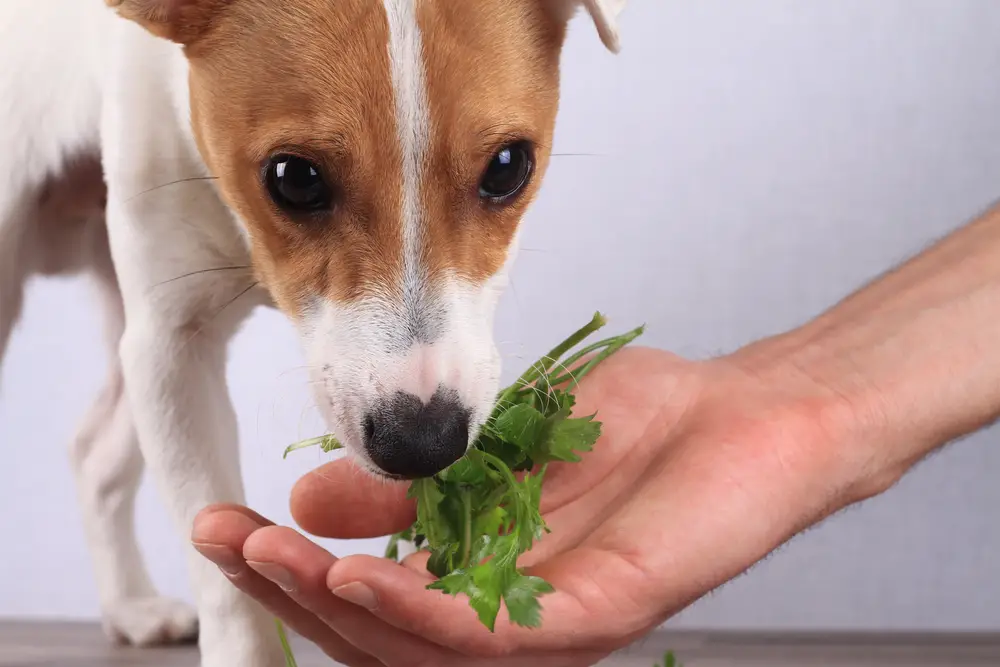
When you think of parsley, it’s likely a garnish that adds a bit of color to your plate. But did you know that this little green herb can work wonders for your dog’s bad breath? Parsley is packed with chlorophyll, which not only helps neutralize bad smells but also promotes good digestion and supports healthy oral hygiene. According to Osadha Natural Health, the chlorophyll in parsley acts like a natural deodorizer for your dog’s mouth, battling the bacteria that cause bad breath in the first place.
To introduce parsley into your dog’s routine, simply chop up a small amount and sprinkle it over their food. You don’t need much—just a teaspoon or so for smaller dogs and a tablespoon for larger breeds. The fresh taste is usually very appealing to dogs, and you might find that they love the added flavor in their meal. If your dog isn’t too fond of parsley, you can mix it with a bit of their favorite broth to entice them. Keep in mind that while parsley is a safe option, you should always use it in moderation to avoid potential digestive upset.
2. Coconut Oil: A Toothbrush Alternative
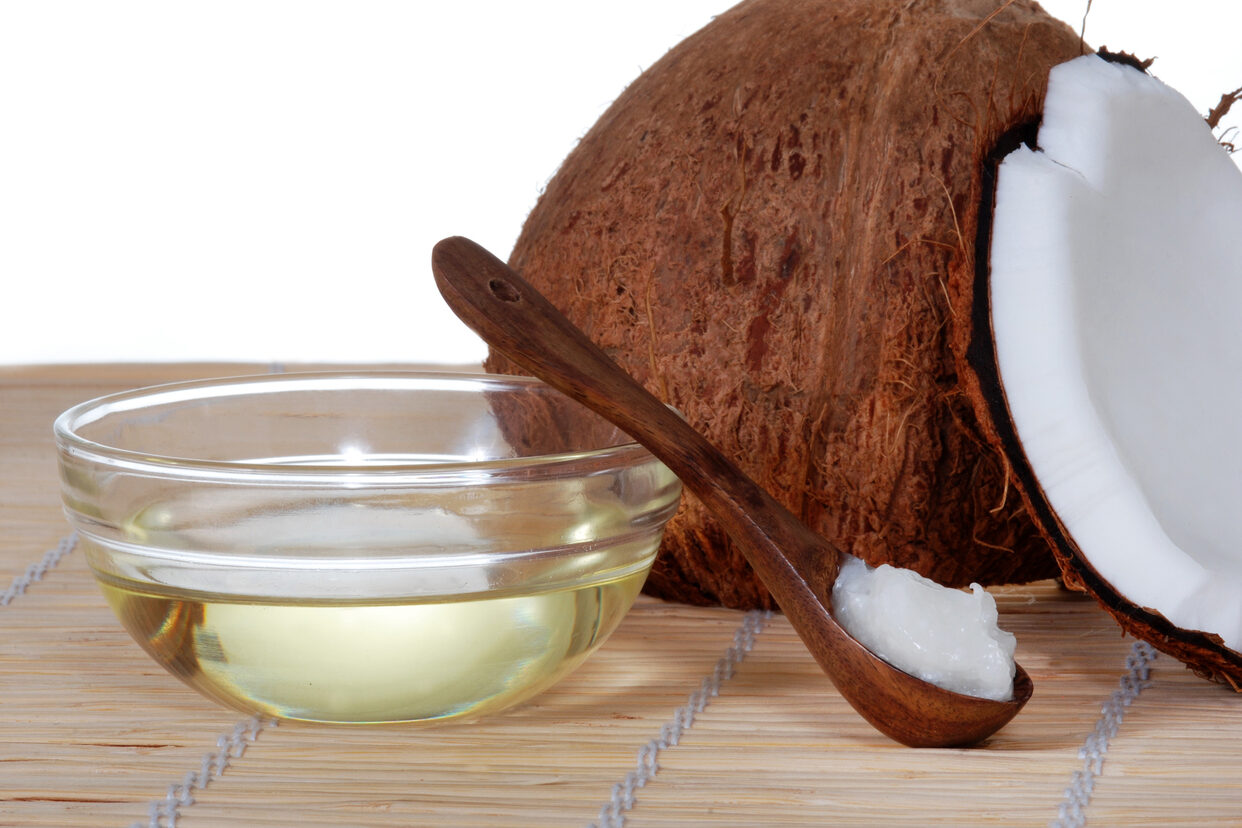
Coconut oil isn’t just a health trend for humans—it’s also an excellent solution for keeping your dog’s breath fresh. This tropical oil contains lauric acid, a natural compound that has potent antibacterial properties. When applied to your dog’s teeth or consumed, coconut oil can help fight the harmful bacteria that contribute to bad breath, effectively deodorizing their mouth. According to Greenies, it can aid in removing plaque and tartar buildup, improving your dog’s oral hygiene overall.
To use coconut oil, apply a small amount (about a teaspoon for small dogs or a tablespoon for larger dogs) to your dog’s teeth with a soft brush or even your finger. Some dogs don’t mind the taste of coconut oil and may enjoy it mixed into their food. It’s a simple way to promote better oral health and freshen their breath naturally. If your dog has a sensitive stomach, start with small amounts to avoid any potential digestive issues. The best part is that coconut oil has multiple benefits for your dog’s health beyond just their breath—it can help with skin conditions, promote healthy coats, and support immune function.
3. Apple Cider Vinegar: A Surprisingly Potent Solution
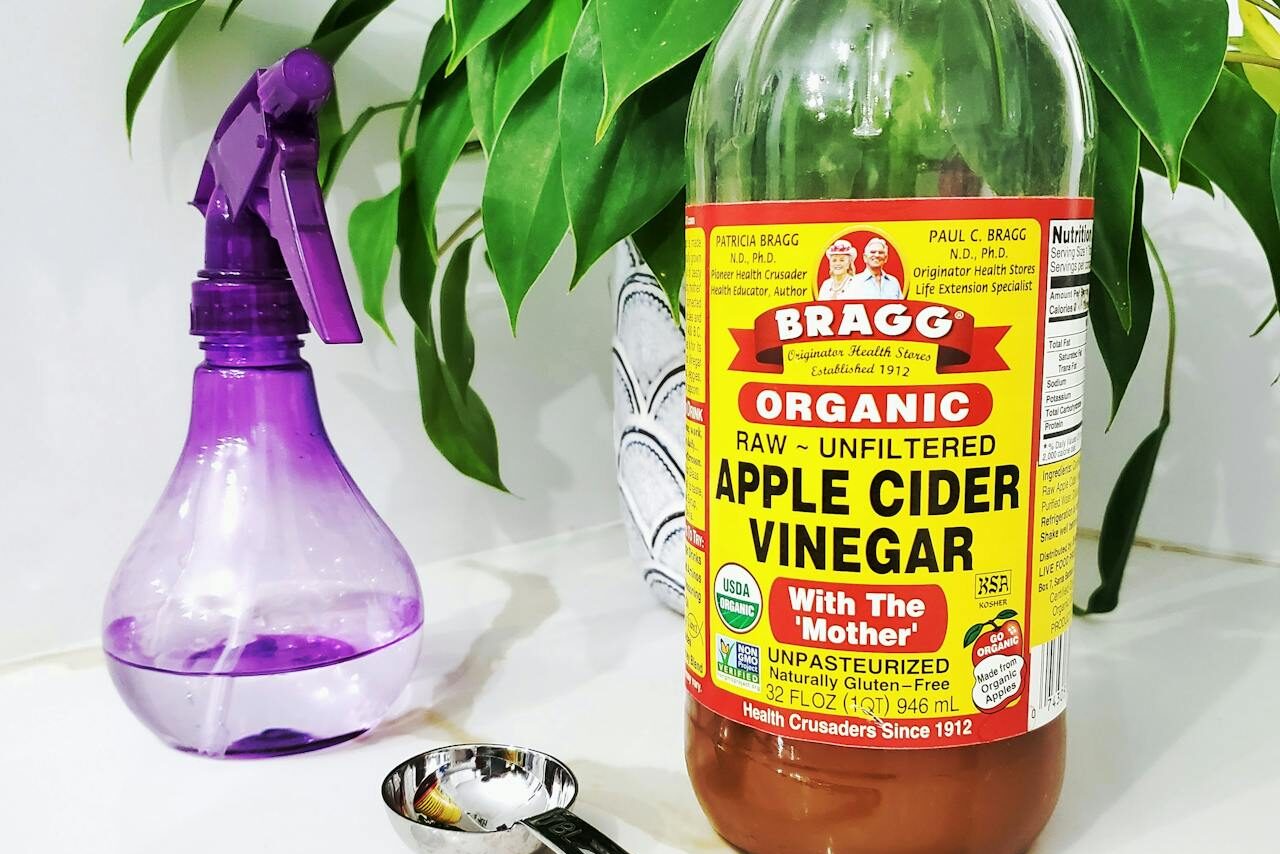
Apple cider vinegar (ACV) is a household staple with an array of health benefits for both humans and pets. This fermented vinegar contains acetic acid, which can help balance the pH levels in your dog’s mouth, creating an environment less conducive to bacterial growth. It can also help neutralize odors and freshen your dog’s breath. Plus, it’s an all-natural solution that’s gentle on your dog’s digestive system.
To use ACV, dilute it with water—about one teaspoon of vinegar to one cup of water. You can add this mixture to your dog’s water bowl to encourage them to drink it. The slight acidity helps to kill off bacteria and wash away food particles that might contribute to foul breath. Start with a small amount and monitor your dog’s reaction, as some dogs are more sensitive to vinegar’s tangy taste. If they’re hesitant, try mixing the ACV with a bit of their favorite treat or food to mask the flavor. With regular use, you may notice a significant improvement in their breath, as well as better overall oral health.
4. Carrots: Nature’s Breath Scrubber

If you’re looking for a tasty and healthy way to tackle your dog’s bad breath, look no further than carrots. These crunchy vegetables are not only nutritious but also serve as a natural toothbrush. When dogs chew on raw carrots, the texture helps to scrub away plaque and food particles from their teeth. This helps reduce the buildup of bacteria, which is a major contributor to bad breath, according to the American Kennel Club. Additionally, carrots are rich in vitamins and fiber, which are great for your dog’s overall health.
To incorporate carrots into your dog’s diet, simply give them raw, unpeeled carrots or cut larger ones into smaller pieces that are easy to chew. Many dogs love the crunchy texture, and it’s a low-calorie treat that can be given regularly. Carrots are a great choice because they’re healthy, safe, and easy to digest. If your dog is reluctant to eat raw carrots, you can try pairing them with a little peanut butter or incorporating them into homemade dog treats. However, always supervise your dog while they chew to avoid choking hazards, especially if you’re giving them large pieces.
5. Greek Yogurt: The Probiotic Powerhouse
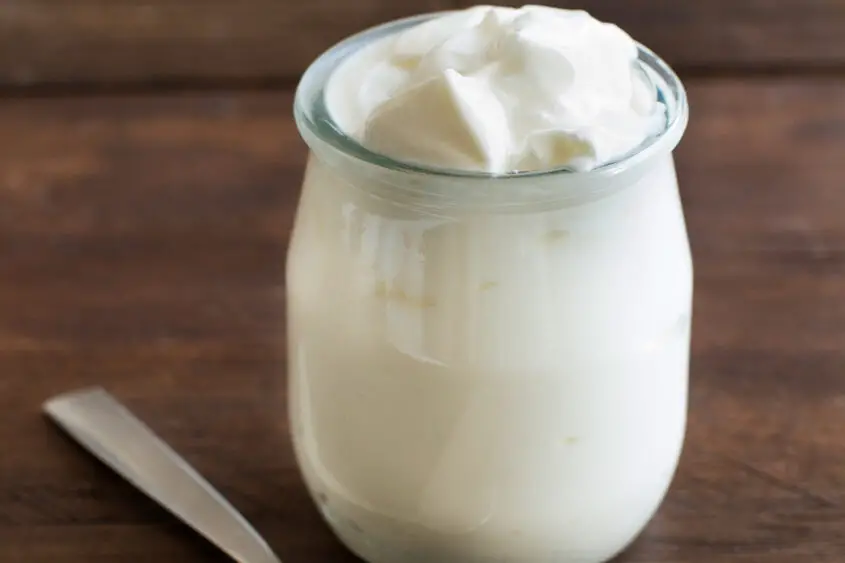
Greek yogurt is known for being packed with probiotics—healthy bacteria that support gut health and digestion. These beneficial bacteria can help balance the microbiome in your dog’s stomach, which may lead to fresher breath. According to Pumpkin Pet Insurance, when the gut is out of balance, it can result in poor digestion and smelly breath, so introducing probiotics via Greek yogurt can be a helpful solution. Additionally, Greek yogurt’s creamy texture and mild flavor make it an enticing treat for dogs.
Start by adding a small spoonful of plain, unsweetened Greek yogurt to your dog’s food. Be sure to avoid flavored yogurts, as they often contain added sugars or artificial sweeteners that can be harmful to dogs. Greek yogurt can also be used as a base for homemade dog treats or frozen into ice cubes for a cool, refreshing snack. If your dog is lactose intolerant, try introducing a small amount at first to see how they tolerate it. Greek yogurt is an easy way to support your dog’s digestive health while also combating bad breath.
6. Green Tea: A Natural Breath Freshener

Green tea is not only good for humans—it can also work wonders for your dog’s breath! Green tea contains polyphenols, which are antioxidants that have antibacterial properties. These polyphenols help fight the bacteria that cause bad breath in your dog’s mouth. Additionally, green tea’s anti-inflammatory properties can soothe your dog’s gums and reduce any swelling or irritation they may be experiencing.
To use green tea for your dog’s bad breath, make a cup and let it cool completely. Once it’s cool, you can add a small amount (about a teaspoon) to your dog’s water or pour it over their food. You can also make homemade treats using green tea as an ingredient. Be sure to use unsweetened, caffeine-free green tea, as caffeine can be harmful to dogs. While some dogs may take a little time to get used to the taste, others may find it quite refreshing. Regularly adding green tea to your dog’s routine can help keep their breath fresh and their mouth clean.
7. Baking Soda: A DIY Freshening Agent
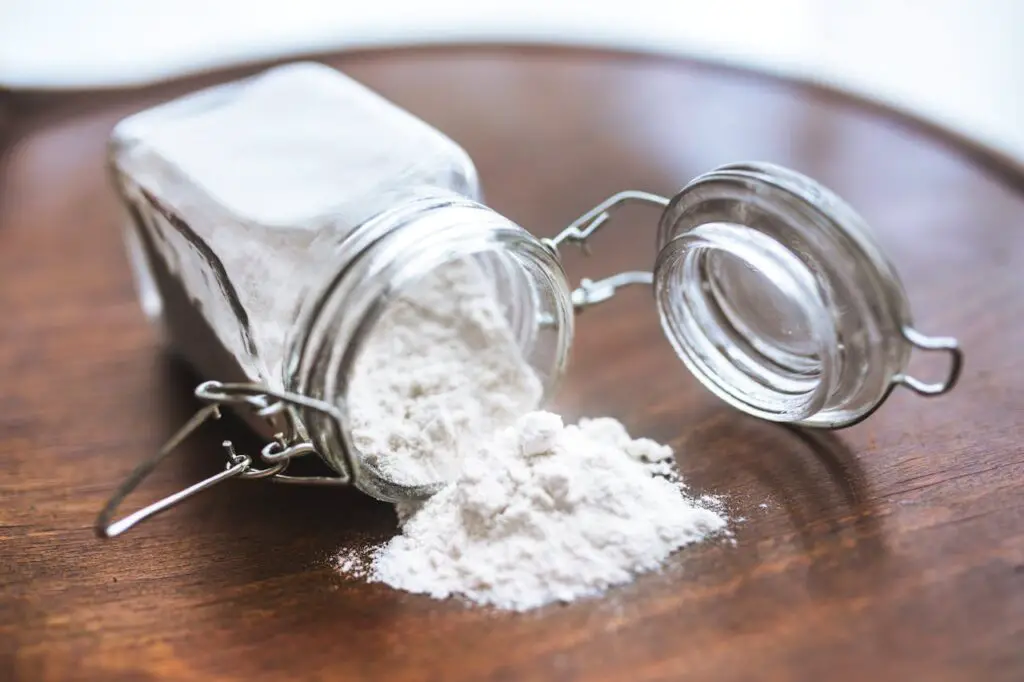
Baking soda is an easy-to-find household item that can work wonders for your dog’s bad breath. Known for its odor-neutralizing properties, baking soda can help neutralize the bacteria in your dog’s mouth that are causing their foul-smelling breath. Additionally, it has a mild abrasive quality that helps to scrub plaque and tartar off your dog’s teeth, promoting better oral health.
To use baking soda, mix about half a teaspoon of it with water to create a paste. You can apply this paste to your dog’s teeth using a soft toothbrush or a cotton ball. Gently scrub their teeth, being careful not to irritate their gums. If your dog doesn’t like the paste, you can also add a pinch of baking soda to their water bowl or food. Baking soda is a safe and cost-effective way to combat bad breath and promote better oral hygiene for your dog. Just remember to use it in moderation, as too much can upset your dog’s stomach.
8. Mint Leaf: A Refreshing Treat

Mint leaves are a classic solution for freshening breath, and they work just as well for dogs as they do for humans. Mint has natural antibacterial properties that help kill bacteria in your dog’s mouth, while its fresh aroma naturally masks bad breath. If you’ve ever chewed gum with mint to freshen your own breath, you can do the same for your dog using fresh mint leaves.
You can chop up fresh mint leaves and mix them into your dog’s food, or make a mint tea by steeping the leaves in hot water, letting it cool, and then adding it to their water bowl. Mint also helps with digestion, so it can be especially useful for dogs whose bad breath may be related to stomach issues, according to Healthy Bud. Like other herbs, mint should be used in moderation to avoid digestive upset, and some dogs might not like the flavor. Start with small amounts to gauge your dog’s reaction, and be sure to use fresh, organic mint.
9. Alfalfa: A Natural Odor Neutralizer

Alfalfa might be known for its benefits to humans, but it can also be effective in improving your dog’s bad breath. Alfalfa contains chlorophyll, which is known for its deodorizing properties. By adding alfalfa to your dog’s diet, you can help neutralize the odors in their mouth and reduce the bacteria that cause bad breath. According to The Pet Gourmet, Alfalfa is also full of vitamins and minerals that support overall health, making it a great addition to your dog’s diet.
You can find alfalfa in powdered form or as a supplement, and it’s easy to add to your dog’s food. Start with a small amount to see how your dog reacts, as large quantities can sometimes cause digestive upset. Alfalfa is a natural and safe option that can provide additional health benefits while helping to freshen your dog’s breath. It’s a simple fix that can lead to noticeable improvements in your dog’s oral hygiene.
10. Watermelon: The Juicy Breath Fix

Watermelon might not be the first thing that comes to mind when you think of fresh breath, but this juicy fruit can actually help with your dog’s bad breath. Watermelon is high in water content, which helps rinse away food particles and bacteria from your dog’s mouth. According to Lincolnway Veterinary Clinic, the natural sugars and fiber also support healthy digestion, which can reduce bad breath caused by stomach issues.
Cut up a few small cubes of watermelon and remove the seeds before offering them to your dog as a treat. The sweet, hydrating fruit can help freshen their breath while also keeping them cool and hydrated. Watermelon is low in calories, so it makes a great healthy snack. Just remember to give it in moderation, as too much watermelon can lead to digestive upset. Your dog will likely love the refreshing taste, and you’ll love the fresh breath that comes with it.


